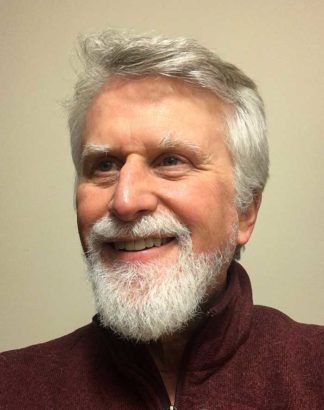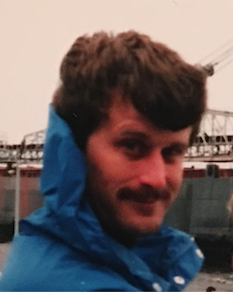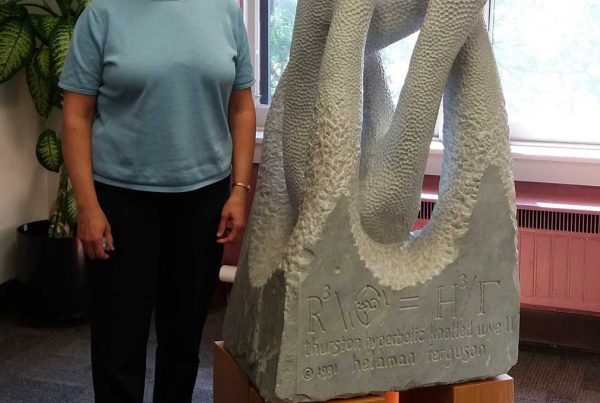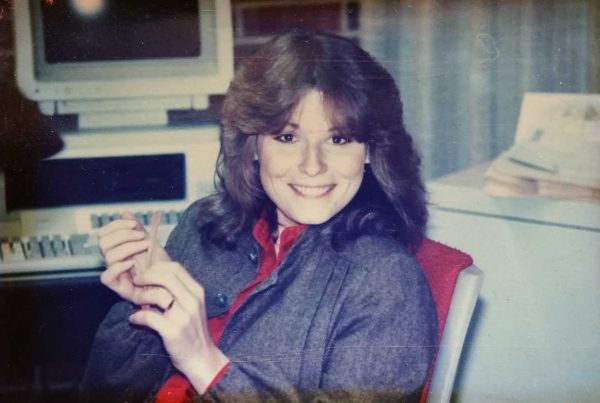By Allison Campbell-Jensen
If you count his time as a student worker at Minitex, John Butler, Associate University Librarian for Data and Technology, has worked at the University of Minnesota Libraries for 36 years.
His roots at the University, however, go back nearly a century. His great-aunt was one of the first women to graduate from the School of Architecture; his uncles played Gopher basketball in the 1940s; his mother grew up in Dinkytown with the campus as her backyard; and his father taught for a time in the architecture school in the 1970s.
“Thinking about the layers of history and the depth of it,” he says, “has brought me to a point of real gratitude for the role the University has played in our family.”
He’s looking back now, as he prepares to retire in early 2021; when he started at the Libraries, he was focused on the future.
Early on the technology edge
Butler earned his bachelor’s degree at the University, then went to the University of Texas for graduate school and his first professional position. He returned to the University as a science and engineering librarian.
“I’m not retiring from the University, I’m graduating again. I leave the University knowing and having learned so much more than when I came.”
—John Butler
As he started in the field in the mid-1980s, he says, “we were right on the edge of huge technological advancement with computing. And then in the next five or so years, the network became the vehicle for information transfer, information retrieval. Those aligned forces really intrigued me.”
One of his early efforts at the University was to profile faculty interests and then send them weekly automated lists of new research in the published literature aligned with those interests.
“By today’s standards, it had some primitive aspects to it,” Butler says. “Yet by the standards of the time, it was novel and unlike any service the faculty had had before.” He continued to work on technology and services and, over time, became head of the science and engineering reference service.
He left that position, however, to work on a large, four-year University of Minnesota grant to provide library services to distributed learners across Minnesota. He built a team to initiate digital reference services, electronic course reserves, and online tutorials. “I’ve always thought these services helped the Libraries pilot and demonstrate future library services,” he says.
When Wendy Pradt Lougee became the University Librarian, she and the then-head for information technology asked Butler to start a new department: The Digital Library Development Lab. “It was an opportunity to broaden our investment in technology, innovation, and building the very creative, very skilled staff to do the programming and build the architectures that are underneath digital libraries.”
Innovation through collaboration
Butler has found power in the collective approach and takes some pride in how collaborative projects have advanced the Libraries. “I’m talking about initiatives and efforts that take us beyond the Libraries to other like-interested institutions or universities to do things at a scale and with a shared vision that none of us could do on our own,” Butler says.
“The obvious example of this is the HathiTrust.” Butler served on the HathiTrust Strategic Advisory Board for several years and then became chair of the HathiTrust Program Steering Committee for two and a half years. The U of M Libraries were charter partners in HathiTrust, an online digital library repository that now has more than 170 academic and research libraries members, including international members, who are committed to preserving their digital collections and providing access to them.
The Big Ten Academic Alliance Geoportal Project is another collaboration in which Butler has an administrative leadership role, with 13 institutions sharing resources and engaging staff currently. This Minnesota-hosted geoportal has aspirations to expand nationwide in the future.
Butler has been with the Minnesota Digital Library since it was just a roundtable idea in 2001, through its growth and connection to the Digital Public Library of America in 2013. The Minnesota Digital Library, brings together digitized archival materials in an online environment from nearly 200 cultural heritage organizations around the state.
“Most of those could not do this on their own,” Butler says. “They don’t have the expertise, the support, the capacity to realize the vision of an inclusive statewide resource.”
Says Butler, “Those are some of the illustrations of the power of collective action for the public good.” These and other points of pride are possible, he says, because people in libraries have an intrinsic sense of the common good and share a culture that lends itself to partnership.
Collaboration is not always easy, and it’s not speedy. Yet especially in this time of institutional uncertainty, the Libraries must “continue to make investments in these collaborative efforts not only to survive but to flourish at levels that we aspire to but can’t achieve on our own.”
What’s next?
“I don’t much care for the word retire,” Butler says. “I’m not retiring from the University, I’m graduating again. I leave the University knowing and having learned so much more than when I came.”
After his last day at the Libraries on Jan. 15, Butler has some ideas for how to take advantage of his free time. More precious time with family and, “when it becomes viable,” he’d like to travel a bit. He studied to be an artist and says, “I have known for years that with more time, I would deepen my engagement with the creative arts and that community.” And he plans to spend more time up on Lake Superior: “That’s a physical thing and a spiritual thing for me being in that part of the state and on the lake,” he says.
This next chapter, he says, “is an opportunity to do some re-balancing along the mind-body-spirit constellation.”
Yet he knows what he will miss. First, “the opportunity to have worked with some amazingly talented and dedicated people.” And secondly, the opportunities available at the University. “My encouragement to anyone working at the University is to seize those opportunities and take some risks in venturing toward them.
“Jump off the cliff once in a while.”






